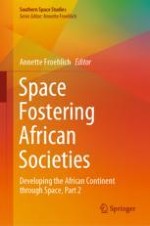2021 | OriginalPaper | Buchkapitel
Reflective Practice in the African Space Sector: The Importance of Cadre Formation
verfasst von : André Siebrits
Erschienen in: Space Fostering African Societies
Aktivieren Sie unsere intelligente Suche, um passende Fachinhalte oder Patente zu finden.
Wählen Sie Textabschnitte aus um mit Künstlicher Intelligenz passenden Patente zu finden. powered by
Markieren Sie Textabschnitte, um KI-gestützt weitere passende Inhalte zu finden. powered by
